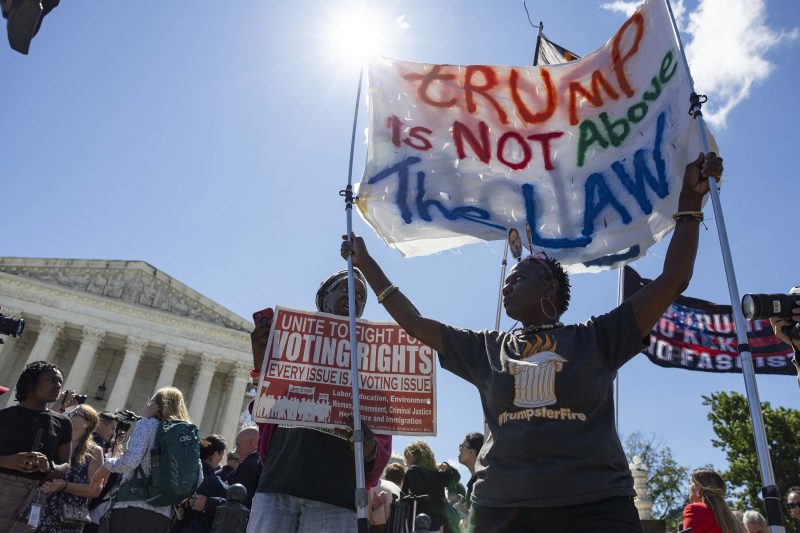In a historic ruling with significant implications for the future of American democracy, the U.S. Supreme Court recently declared that a sitting president does not have absolute immunity from state criminal investigations. This landmark decision raises crucial questions about the balance of power and accountability in the highest office of the land.
The ruling stemmed from a case in which the Manhattan district attorney issued a subpoena for President Donald Trump’s financial records as part of a criminal investigation. President Trump had argued that he was immune from such investigations while in office, citing the separation of powers and the potential for harassment and distraction. However, the Supreme Court rejected this argument, emphasizing that no individual is above the law, even the president.
Legal experts have hailed the Supreme Court’s ruling as a crucial safeguard of the principle that no one, not even the president, is immune from investigations into potential wrongdoing. This decision reinforces the idea that the president is subject to the same legal standards as any other citizen, a foundational principle of democracy.
Furthermore, the ruling underscores the importance of checks and balances in the U.S. political system. By affirming that the president is not immune from criminal investigations at the state level, the Supreme Court has reinforced the role of the judiciary as a check on the executive branch, ensuring accountability and transparency in government.
However, the ruling also highlights the ongoing challenges and debates surrounding the limits of presidential power and immunity. Some critics have expressed concerns that subjecting a sitting president to criminal investigations could be a distraction and hinder the ability to govern effectively. Others worry about the potential for politically motivated investigations targeting the president.
Moving forward, the Supreme Court’s decision sets an important precedent for future administrations and underscores the need for transparency and accountability in government. It marks a significant step in upholding the rule of law and reinforcing the democratic principles upon which the United States was founded.
Despite the complexities and controversies surrounding the issue of presidential immunity, the Supreme Court’s ruling serves as a reminder that no one, regardless of their position or power, is above the law. It sends a clear message that accountability and transparency are essential components of a healthy democracy, and that the rule of law must be upheld to safeguard the integrity of American institutions.
